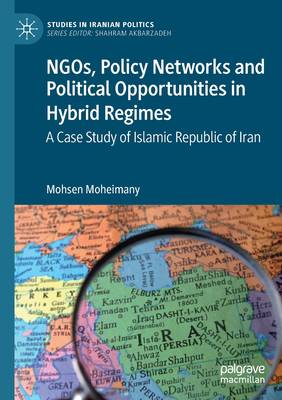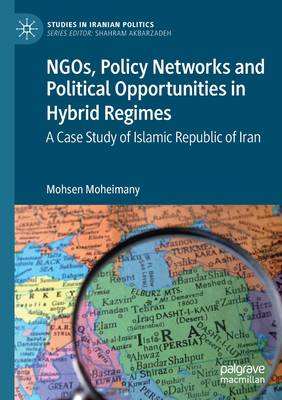
- Retrait gratuit dans votre magasin Club
- 7.000.000 titres dans notre catalogue
- Payer en toute sécurité
- Toujours un magasin près de chez vous
- Retrait gratuit dans votre magasin Club
- 7.000.0000 titres dans notre catalogue
- Payer en toute sécurité
- Toujours un magasin près de chez vous
Ngos, Policy Networks and Political Opportunities in Hybrid Regimes
A Case Study of Islamic Republic of Iran
Mohsen MoheimanyDescription
This book discusses the diversity and resilience in a hybrid regime where civil society organisations are either provided with complex sets of opportunities or face severe constraints. By studying the case of Iran between 1997 and 2013, it shows how the Islamic Republic regime went into two opposite directions under two presidencies and played in-between supporting and suppressing advocacy NGOs. After accommodating a novel theoretical framework enabling scholars to identify the contributing factors of diversity in the regime, four case-study chapters are designated for comparing the women's rights and environmental NGOs across local and national governments. These two political and technical policy areas demonstrate the different scopes of freedoms for advocacy NGOs. The contrasting narratives of the civil activists and policymakers imply paradoxes and shifts in the arrangement of opportunities for action and advocacy, although the leadership and structure of the regime remained unchanged during the period of study.
Spécifications
Parties prenantes
- Auteur(s) :
- Editeur:
Contenu
- Nombre de pages :
- 354
- Langue:
- Anglais
- Collection :
Caractéristiques
- EAN:
- 9789813362260
- Date de parution :
- 16-02-22
- Format:
- Livre broché
- Format numérique:
- Trade paperback (VS)
- Dimensions :
- 148 mm x 210 mm
- Poids :
- 485 g

Les avis
Nous publions uniquement les avis qui respectent les conditions requises. Consultez nos conditions pour les avis.






